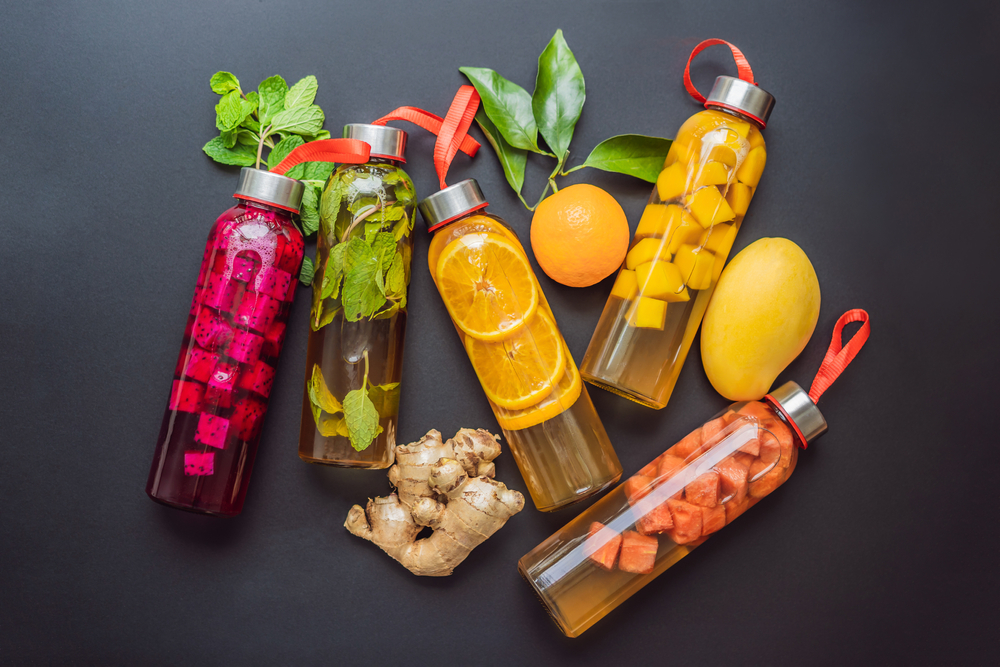Whether you brewed it at home or bought it at the supermarket, you may be underwhelmed with the taste of kombucha. If you dislike the taste of your kombucha, and you want to improve it, your best bet is to add flavors. Herb or fruit flavors can make it more palatable and delicious.
Table of Contents
Is Kombucha Supposed to Taste Vinegary?
Because kombucha is a fermented drink, it will naturally have a slightly vinegary taste. This acidity comes from the fermentation process and means the brew is mature. However, if it tastes overly vinegary or acidic, it probably means it has been left to ferment for too long.
At the supermarket, look for flavored kombucha. Raw, unflavored kombucha is more likely to have an earthy or vinegary flavor.
There are approximately 534 kombucha brands in the US. Each company has its own brewing methods, and kombucha flavors vary significantly from brand to brand. If you didn’t love the first one you tried, try a different brand.
How Can You Make Kombucha Taste Better?
Enhance the flavor of store-bought or homemade kombucha by:
- Adding fruit juice or fruit puree: Add pieces of fresh fruit, fruit puree, or fruit jam to your kombucha. You can drink it as is or allow it to begin its secondary fermentation, creating a fruity-flavored kombucha. Some good flavor ideas include cranberry, pomegranate, orange juice, passionfruit, fresh ginger, or watermelon.
- Watering it down: Adding soda water or even regular tap water can help reduce the pungent taste and make the fizzy drink more palatable without adding sugar.
- Turning it into a smoothie. Add your favorite frozen fruits and vegetables in a blender with kombucha.
- Adding sweetener: You can add sugar, honey, or any sweetener to your (homemade or store-bought) booch. You can drink it immediately or begin a second fermentation, placing it into lidded glass bottles and leaving it at room temperature for 2-4 days.

4 Reasons Your Homemade Kombucha Tastes Bad
Because of the fermentation process, all kombucha tea will have a bit of an acidic, vinegary taste. However, if your batch of kombucha is overly-acidic, there are a few reasons this could be.
- It was fermented too long: Regular fermentation takes seven to twelve days. However, if you noticed previous batches were too vinegary, taste your batch on day six and see if it is ready. The longer kombucha ferments, the more acetic acid the yeast and bacteria create. This gives it a more spicy vinegar-like taste.
- Fermenting temperature is too warm: The warmer the temperature in the room you are fermenting your kombucha in, the faster the SCOBY will react and ferment the kombucha. That said, even if you leave it to ferment for the usual amount of time, it may become more acidic and tart than if it were brewed in a cooler environment.
- The yeast balance is off: If your batches are brewing too quickly, you may need to check the yeast balance of your tea. Rebalance it by removing the stringy brown bits from your kombucha SCOBY. If that doesn’t work, steep the sweet tea for less time (the SCOBY feeds on the tannins). Use a store-bought, unflavored raw kombucha rather than your own starter tea as a final resort. This may help reintroduce a more balanced yeast colony to your homebrew.
- Your SCOBY is too big, or you used too many: The kombucha SCOBY is the fermentation starter, which creates the reaction to make the acetic acid in the first place. If you use too many SCOBYs or your SCOBY is too big, it will produce more acid, meaning more of a vinegar taste.
3 Ways To Use Sour Kombucha
If your kombucha is too vinegary and you can’t fix it, there are some things you can use it for so that it doesn’t go to waste.
- Use it as a starter liquid when brewing kombucha. Your next batch will need a starter tea; luckily, this strong acidic liquid is perfect! You can keep it in the refrigerator until time to use it.
- Use it as a marinade. For a distinct taste, you can marinate your proteins or veggies in the kombucha.
- Use it to make vinegar. If your kombucha already tastes too vinegary, you might as well let it turn into vinegar. Ferment it for about 70 days, and use it as you would any other vinegar (as a dressing, pickling brine, household cleaner, etc.). You can even add apples and create a kombucha-style apple cider vinegar.

